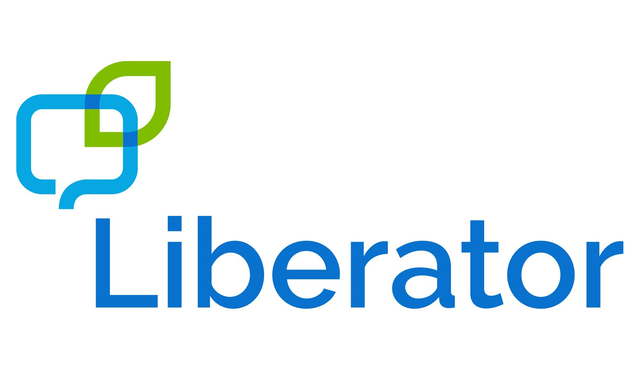We use cookies to make your experience better. To comply with the new e-Privacy directive, we need to ask for your consent to set the cookies. Learn more.
Battery Directive
Liberator Ltd Battery Directive Compliance Information
Waste Battery Returns Process
If you would like to dispose of your waste batteries under the Battery Directive, please e-mail compliance@liberator.co.uk providing full details of all battery/batteries to be collected and disposed of, also please provide full contact details including a collection address and e-mail and phone numbers.
You will be contacted by a representative from Liberator within two business days either to request follow-up information or for scheduling the battery collection.
On behalf of Liberator we thank you for the proper disposal of your waste battery products.
Sales
All batteries sold in products by Liberator are marked with the WEEE label (crossed out wheelie bin) to alert our customers that batteries bearing this label should not be disposed in a landfill or with municipal or household waste in the EU.
Returns
In the European Union (EU), battery waste is now subject to regulation designed to prevent the disposal of such waste and to encourage or treatment measures to minimize the amount of waste ultimately disposed. The objective of this regulation is to preserve, protect and improve the quality of the environment, protect human health, and utilize natural resources prudently. In particular, the EU Battery Directive 2006/66/EC (the Battery Directive) requires that Producers of batteries be responsible for the collection, reuse, recycling and treatment of batteries which the Producer places on the EU market after October 2009. Liberator as a battery producer and distributor endeavours to meet these environmental responsibilities. In so doing, Liberator is providing the following to inform its customers about Liberators battery collection process.
Take-back Policy
To comply with the Battery Directive, Liberator has expanded their product take back program to cover collection, treatment, recovery and disposal of all batteries sold by Liberator into all EU Member States on and after October 2009. Liberator will take back batteries which are part of Liberator’s equipment, from its customers within the EU.
Battery Collection Process New Batteries
If you have purchased batteries in products sold by Liberator in the EU on and after October 2009, and are intending to discard these batteries at the end of their useful life, please do not dispose of them with your other household or municipal waste. Liberator has labelled internal batteries in all products with the WEEE label to alert our customers that products bearing this label should not be disposed in a landfill or with municipal or household waste in the EU. Instead, please be aware that Liberator is making a return and collection system available to you for discarding these products.
When batteries sold into the European Union have reached the end of their useful life, Liberator collects the batteries from our customers and routes it to our treatment contractor in the UK where the waste will be audited and screened for correct disposal. Where possible, the products will be reused. Material that cannot be reused in some form is recycled by Liberator’s asset recovery contractor. A significant portion of Liberator’s returns are recovered, either by remanufacturing, reselling and recycling with minimal waste being sent to the landfill.
To help in the proper handling of batteries at the end of their useful life, Liberator requests you return those batteries using the instructions provided here, so that they can be collected, dismantled for reuse and recycled, and properly disposed.
Other Information
By working together with it's customers for the return of Liberators waste batteries, Liberator can better meet its environmental stewardship goals in the UK & EU by properly managing product returns for reuse, recycling and waste minimization wherever possible. With your help, we can continue our commitment to protecting the global environment.
Disposal of existing equipment
When disposing of customers existing equipment we fully comply with the Battery Directive regulations.
Wherever possible batteries are stripped and separated and reworked or used for service operations, if parts cannot be re-used then we prepare them for recycling. In addition we also deal with specialist waste disposal companies who dispose of any waste in compliance with the Battery Directive. All batteries must be disposed of in compliance with our own internal environmental policy we have been fully accredited with this directive since March 1st 2008 in preparation for the full legislation implementation in October 2009. We not only have the procedures in place to correctly dispose of customer’s equipment but actively encourage it as part of Liberators commitment to the environment.
New Sales Data Submission Process
All existing and new products fitted with batteries have their battery type information logged, both by chemical composition, weight, and classification. This weight information has been / is added to our accounts software system Sage. All battery weights and other information are audited on an annual basis and this process is fully documented.
Every quarter an excel report is generated from Sage which contains all UK product sales information including the battery information. From this report we can abstract the sales date, weight, quantity, customer / business account information, battery category e.g. portable, industrial, etc. Finally we can obtain from the report total weights for each battery type.
This data is submitted to the Environment Agency on an annual basis.
National Packaging Waste Database (NPWD) Scheme
Liberator is registered with the Environment Agency as a hazardous waste producer on their NPWD scheme.
Recycling Contractors
Liberator use GP Battery Recycling for the storage (via a rental waste battery container) contained on Liberators premises, collection and recycling (upon request by e-mail when the container is full) of battery waste. All battery waste evidence reports are stored on our servers in electronic format.
